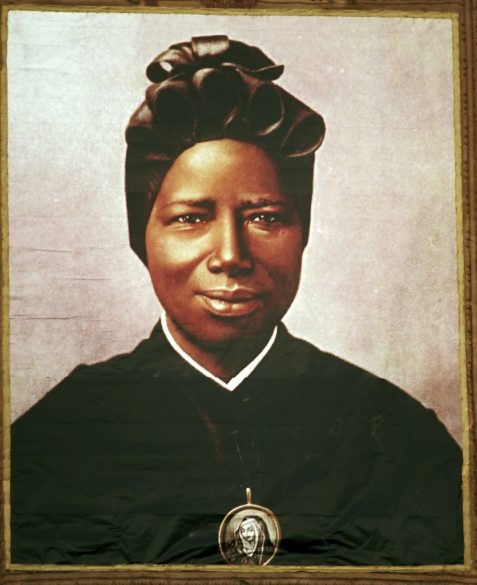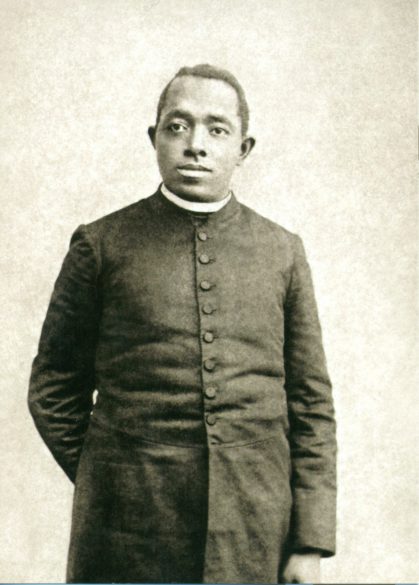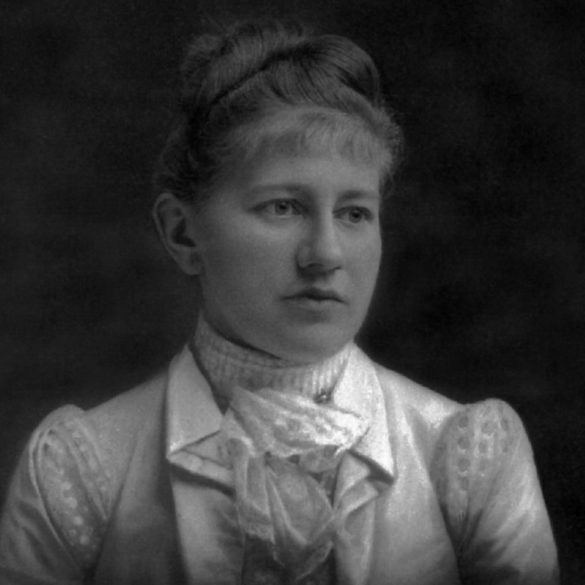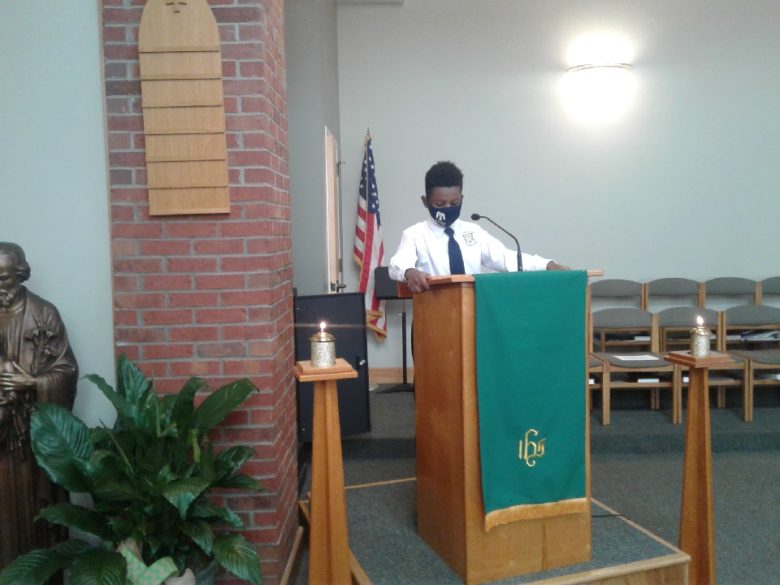Editor’s note: On July 24, 1990, the National Black Catholic Clergy Caucus of the United States designated November as Black Catholic History Month to celebrate the long history and proud heritage of Black Catholics. In this edition, find articles and columns highlighting the rich history of the African presense in the church and a racial justice report from the diocese department of faith formation. Additionally, we will be beginning a series “From the archives” that will highlight Black History in our diocese, among other intriquing subjects. Black Catholic History is truly a gift.

By Richard Lane
DETROIT – Transference of something from one place to another, or the movement of one thing to another. That is the medical definition of the word ‘gift’; an “action” or redirection of someone or something. A “gift” is also a relocation of a tendon due to a trauma or suffering, from one area to an infected area, for healing or strengthening of the weakened or affected muscle.
Imagine waking up one morning as a 7-year-old child. You are happy and carefree, excited to learn more about the wonderful world you have been blessed to be born into. Your loving family cares about you and protects you unconditionally. Out of nowhere, though, someone comes and not only takes you away, but sells you into slavery at least seven times. You were given a name whose meaning is “favored/blessed/lucky.” You were forced to walk barefoot for more than 600 miles. Your innocence is stolen from you; your safety taken from you; your dignity taken from you; your childhood, your womanhood, your life stolen — and you have no idea why or how this happened. Yet your life and those after you would have a deleterious effect forever, yet you are considered to be a gift, a blessing, you are considered favored by God, but how do you understand as a mere child?

You later understand that your trauma is due to the color of your skin, which others have maimed, mutilated and tortured for reasons beyond your adolescent comprehension. Taken to a foreign land to people you have never seen, given foods you have never eaten and assigned a life you never knew existed, you are a “gift” or “blessing” to others. This is the story of one Josephine Bakhita, a Sudanese Catholic saint of our church. Amid her suffering and pain, Bakhita (which means “blessing/lucky/favor” in her native tongue) saw the gift that was meant for her. She saw and encountered a transference from pain to power; from brutality to blessing; from slavery to salvation. She encountered Jesus within the Catholic Church. I ask you: Do you know the gift?
In 1854, a child was born into slavery in Missouri. He was baptized and raised Catholic and at an early age encountered the “gift” that was before him in his Catholic faith. He desired not only to follow this gift but to become a “gift” to God by giving his life to the sacrament of holy orders as a priest, but he was not allowed to enter the seminary because of the color of his skin. Imagine the disappointment, hurt and pain of not being able to give your life to God totally just because of your race.
Eventually sent to seminary in Rome and ordained a priest, he thought he would be sent as a missionary priest to Africa (due to the color of his skin), but was sent back to pastor a Black Catholic congregation in Quincy, Ill., where he would be known in derogatory terms using the n-word. Father Augustus Tolton became the first “gift” to the Black Catholic Church by being the first African American (Black) priest ordained for (not in) the United States. Father Tolton saw and encountered a transference from failure to freedom; from denial to destiny; from slavery to spirituality. Do you know the gift?
In the fourth century AD, a man was terminated from his job as an official within the Egyptian government for being a thief and murderer. He gathered a group of 75 men who pillaged, plundered, robbed and raped throughout the Egyptian desert. This man was the biggest and baddest, the most imposing, figure of the time.

Upon coming to a monastery in the desert, he was approached by the abbot and later converted to Christianity. It took time for this marauder to come to grips with his true gift. He was able to convert the 75 criminals to join the monastery and they also became monks, yet he was not satisfied with his personal efforts. He was conflicted by his past and his present, not understanding why he was chosen, why he was considered a gift. Early one morning, a man named Isidore took him to a mountain and they sat and watched the sunrise. Isidore told him “just as it takes time for the rays of the light to break through the darkness, slowly does it take time for you to understand perfection in contemplation.” St. Moses the Black saw and encountered a transference from rape to repentance; from crime to contemplation; from murder to mystagogia. Do you know the gift?
There has been a long, deep and rich history of African and African American influence in the Catholic Church. A Black presence in the Bible has been hidden and stolen from Christianity and it has only been since the promulgation of the Second Vatican Council that the church has not only identified this great gift but encouraged its celebration. From Ham, to Hagar, Cyprian to the Ethiopian eunuch, Pope Victor I to Pope Melchiades, Pope Gelasius (three Black popes) to Sts. Perpetua and Felicity, the Black heritage in the Catholic Church has been concealed. This kept Blacks, especially slaves, from knowing their history, their lineage, and their importance within the Eurocentric Catholic Christian tradition.
From not allowing Blacks education, learning to read or even being considered as humans, this nation and our church were complicit in the abomination of slavery. Catholic slave owners were given permission by bishops to own slaves; in some cases, even local ordinaries owned slaves, to build their churches, forced labor for economic gains within certain dioceses. Catholic slave owners were mandated, if they owned slaves, to take them to church and allow them to “witness” Mass, but, in some instances, baptized Catholic Black slaves were denied the Eucharist due to the pigment of their skin.
In 1990, the Black Catholic Clergy Caucus of the United States saw a need for a new encounter and transference of the gift of Blacks for the church as a whole, and thus began the annual celebration of Black Catholic History Month. This month is set aside to specifically celebrate and teach the rich, deep history and contributions Blacks, those persons “of color,” and their allies have made to significantly impact the church as a whole: St. Katharine Drexel, St. Peter Claver, St. Martin de Porres, St. Maurice, St. Benedict the Moor, Sister Thea Bowman and Daniel Rudd, to name just a few.

In his address given to the Black Catholic Leadership in the United States at the Superdome in New Orleans, La., in 1987, Pope St. John Paul II spoke of the “rich cultural gifts” brought to the Catholic Church in the United States by almost 3 million Black Catholics:
“Dear brothers and sisters: your black cultural heritage enriches the church and makes her witness of universality more complete. In a real way the church needs you, just as you need the church, for you are part of the church and the church is part of you. As you continue to place this heritage at the service of the whole church for the spread of the Gospel, the Holy Spirit himself will continue through you his work of evangelization.”
The Black culture brings the richness of her movement, music, sounds and smells, shouts and screams, preaching and praise. It is the 150th Psalm exegetically and hermeneutically brought to life within the sacred liturgy; praising God in His Sanctuary; Praise for His acts of power and surpassing greatness; praising with sounds of musical instruments and liturgical dance. We see the ebbs and flows of an oppressed and enslaved peoples, brought free from bondages and slavery; free to worship; free to celebrate its liberation and deliverance from a systemic tyranny and oppression.
The muscle of once proud and rich peoples, weakened and traumatically ripped away from their homes, lives, culture and almost their own existence, encounter a transference, a great gift … a gift by the Living God, who when encountered, provides not only a transference but a rich culture of the faith of a people, bound together by the sinews of their hopes and faith in the Promise of a God that assures His Gift of eternal salvation. Do you know the Gift?
(Richard Lane is an international Catholic speaker and founder of Richard Lane Ministries. His article appeared in the November 2020 issue of CatholicTV Monthly (Vol. 16, No. 1) and was reprinted with permission. Visit www.catholictv.org.)
